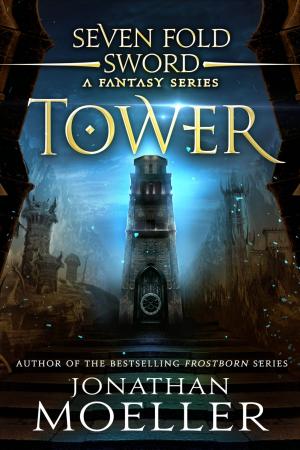Requiem of the Human Soul
Fiction & Literature, Native American & Aboriginal, Science Fiction & Fantasy, Science Fiction| Author: | Jeremy R Lent | ISBN: | 9780692806005 |
| Publisher: | Jeremy Lent | Publication: | December 15, 2016 |
| Imprint: | Jeremy Lent | Language: | English |
| Author: | Jeremy R Lent |
| ISBN: | 9780692806005 |
| Publisher: | Jeremy Lent |
| Publication: | December 15, 2016 |
| Imprint: | Jeremy Lent |
| Language: | English |
**Eusebio Franklin, a school teacher from a small community, is faced with the most terrifying dilemma imaginable: should he carry out an act of mass terrorism in order to save the human race? **
Eusebio has been chosen to defend our human race in a special session of the United Nations. It's the late 22nd century, and most people are genetically enhanced; Eusebio is among the minority that remain unimproved, known as Primals, consisting mostly of the impoverished global underclass. The UN is on the verge of implementing a "Proposed Extinction of the Primal Species" and Eusebio's been picked to represent his race in a last ditch legal effort to save the Primals from extinction.
It's a hearing like no other. Our human race is on trial. Our own sordid history––the devastation we've caused to indigenous cultures around the world, the destruction of our environment and of other species––becomes evidence in the case against our continued existence.
But as the hearing progresses, Eusebio is faced with a terrible decision. He's secretly visited by Yusef who represents the Rejectionists––a renegade group of Muslims, Sikhs and Hindus refusing to accept the d-humans' genetic optimization because it prevents them from knowing God. Yusef urges Eusebio to take the only meaningful action to save the human race from extinction: detonate a nuclear bomb hidden in the UN building in New York where the session is taking place.
As the story develops to its dramatic climax, Eusebio finds himself increasingly alienated from the d-human world, while Yusef's plot places him in an agonizing moral dilemma: whether to engage in an act of nuclear terrorism to preserve the human race.
In this novel, the reader faces challenging questions about spirituality, history and global politics: Could our race "evolve" itself to a higher plane? At what cost and benefit? If we lost what is now the "human race" as a result, would that be so bad, given our sordid and shameful history? On the other hand, is there something special, our soul, worth keeping at any price? Ultimately, the novel forces the reader to grapple with the fundamental question: what does it mean to be human?
**Eusebio Franklin, a school teacher from a small community, is faced with the most terrifying dilemma imaginable: should he carry out an act of mass terrorism in order to save the human race? **
Eusebio has been chosen to defend our human race in a special session of the United Nations. It's the late 22nd century, and most people are genetically enhanced; Eusebio is among the minority that remain unimproved, known as Primals, consisting mostly of the impoverished global underclass. The UN is on the verge of implementing a "Proposed Extinction of the Primal Species" and Eusebio's been picked to represent his race in a last ditch legal effort to save the Primals from extinction.
It's a hearing like no other. Our human race is on trial. Our own sordid history––the devastation we've caused to indigenous cultures around the world, the destruction of our environment and of other species––becomes evidence in the case against our continued existence.
But as the hearing progresses, Eusebio is faced with a terrible decision. He's secretly visited by Yusef who represents the Rejectionists––a renegade group of Muslims, Sikhs and Hindus refusing to accept the d-humans' genetic optimization because it prevents them from knowing God. Yusef urges Eusebio to take the only meaningful action to save the human race from extinction: detonate a nuclear bomb hidden in the UN building in New York where the session is taking place.
As the story develops to its dramatic climax, Eusebio finds himself increasingly alienated from the d-human world, while Yusef's plot places him in an agonizing moral dilemma: whether to engage in an act of nuclear terrorism to preserve the human race.
In this novel, the reader faces challenging questions about spirituality, history and global politics: Could our race "evolve" itself to a higher plane? At what cost and benefit? If we lost what is now the "human race" as a result, would that be so bad, given our sordid and shameful history? On the other hand, is there something special, our soul, worth keeping at any price? Ultimately, the novel forces the reader to grapple with the fundamental question: what does it mean to be human?















